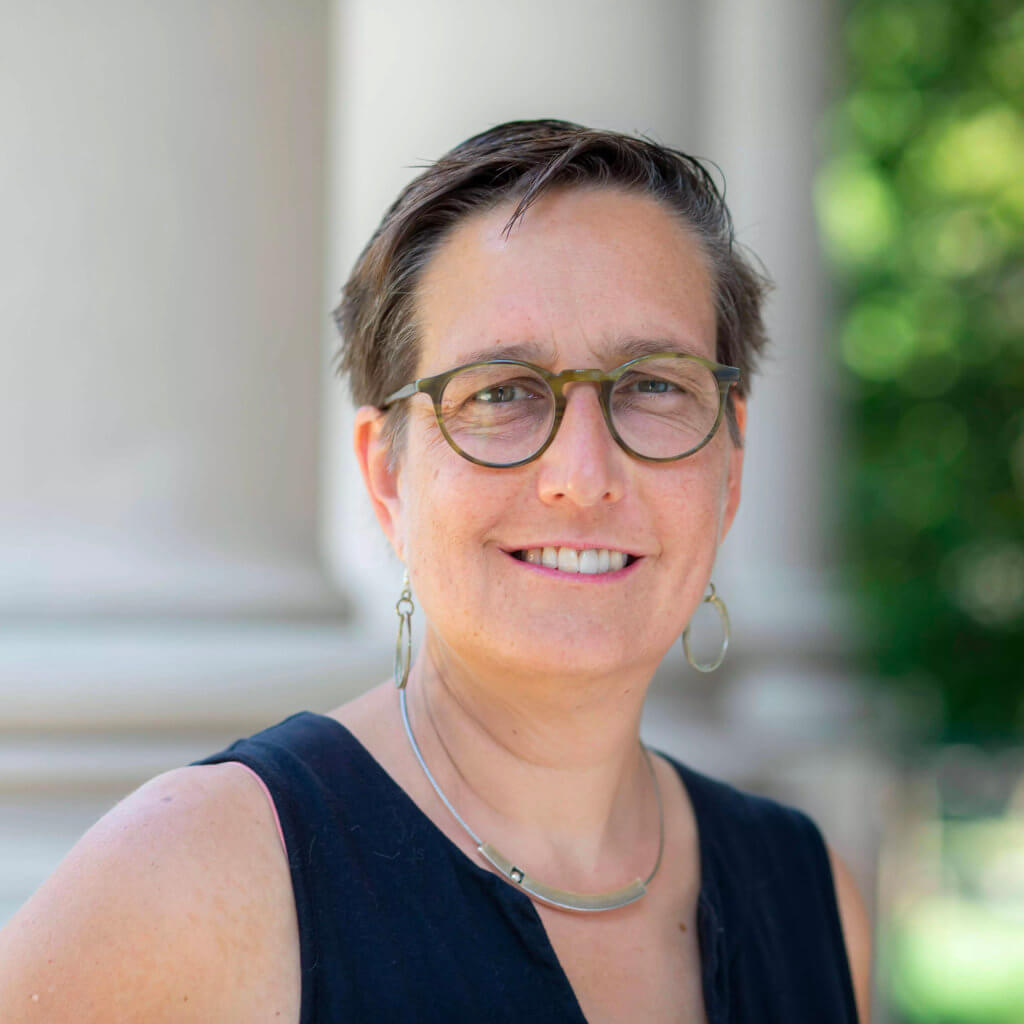Heide Estes, Ph.D., professor of English, gave the keynote lecture, “Climate Then, Crisis Now: Medieval Ecocriticisms and Environmental Activism,” at the International Medieval Congress, held virtually by the University of Leeds from July 5-9, 2021.
The Congress, held in Leeds every July since 1994, is one of the largest academic conferences in Europe, drawing participants from around the world every year.
In her remarks, Estes called climate crisis the gravest problem facing the world today and urged audience members to link teaching and scholarship with activism. She called for scholars in all subfields of medieval studies to consider how natural and built ecologies interact with other questions they explore.
“Our present environmental crisis has developed out of the ways in which people of the past viewed the world as a limitless resource available to humans,” Estes said.
“An Old English text about Alexander the Great describes how Alexander orders his men to cut down all the trees around a lake with good drinking water and burn them in 1,500 fires. Alexander treats animals, trees, and people in India all interchangeably as resources for his own interests. Alexander’s utilitarian treatment of the people of India also raises issues of social justice and the ways that Europeans treated others when they began traveling to and colonizing lands and peoples outside of Europe,” Estes observed. “Narratives about Alexander the Great evolved into a widespread tradition of romances about the king, who is treated as the hero, adapted and translated into dozens of medieval languages,” she said.
Estes acknowledged that we can not stop climate change: we have reached, and breached, the outer limits of Earth’s resources. But we can keep it from having its worst possible effects on the most vulnerable human populations as well as on animals and plants, Estes said. One of the most effective things we can do about climate crisis is talk to people — family members, neighbors, and our students and colleagues. “We can take action to make the coming events not as bad as they would be if we don’t do anything,” she said.

